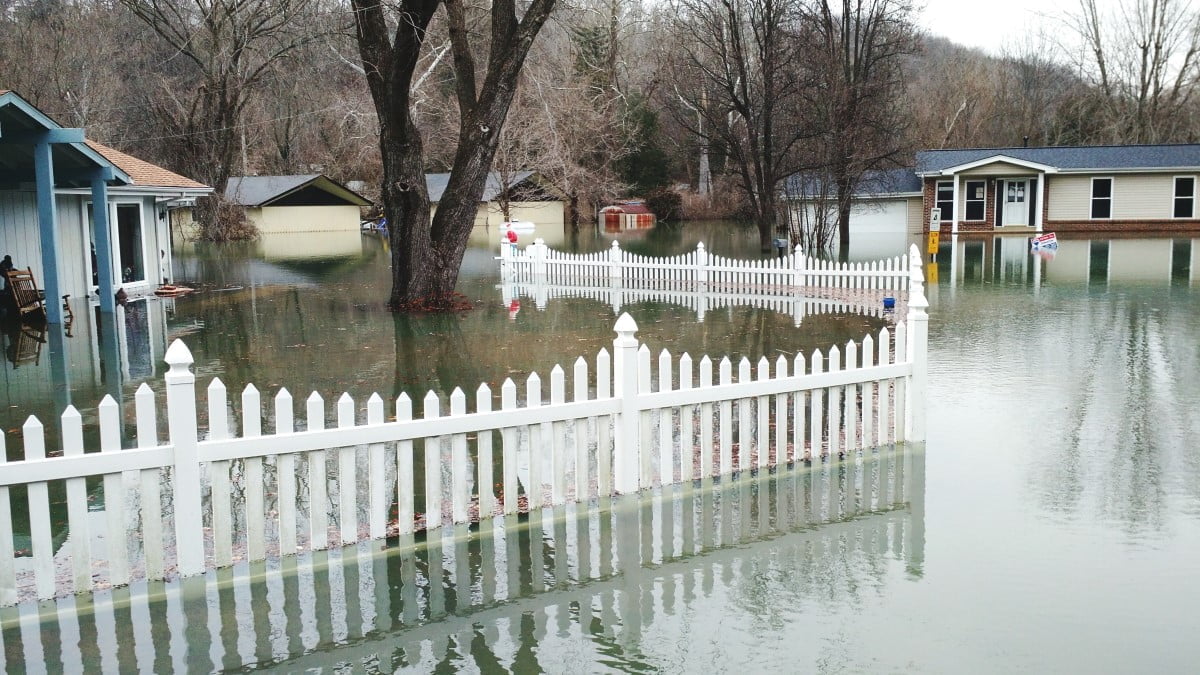
The best time to protect against flooding is before flooding occurs. So if you store anything in a basement or live on the ground floor, it’s important to have flood insurance. However, many properties that require flood insurance do not.
Flood insurance is separate from standard homeowners or renters insurance and can cover your home and personal belongings in the event of flooding. In most cases, flood insurance can cover flooding caused by hurricanes and extreme amounts of rain.
Buying flood insurance is a good idea for many, but in some cases it is also a must. It’s important to understand when and how to buy flood insurance so you can be prepared before a disaster strikes.
The Federal Emergency Management Agency (FEMA) administers the National Flood Insurance Program (NFIP), which is generally a good place to start.
General coverage options
Under federal law, homes with federally regulated mortgages are required to have flood insurance if they are located within a Special Flood Hazardous Area (SFHA). Even if your home is not in his SFHA or high-risk flood zone, the lender may require you to have flood insurance before approving the mortgage.
standard homeowners insurance policy It may cover certain types of flood damage, but not floods. If you want to protect yourself, you need flood insurance separately.
Because flood damage can be expensive, the NFIP offers subsidized insurance to homeowners in many communities, such as hurricane and storm surge prone areas of the East Coast and floodplains near rivers. It offers. If your area is not covered, insurance is available through a private company. NFIP policies usually have deductibles that must be met.
Building or dwelling coverage is for physical property and can provide coverage for structural damage. This includes flooring, carpets, garages, porches, etc. Most mortgage lenders require at least this type of coverage if you live in a high-risk flood zone.
Coverage for property or content is non-structural personal property. So, if a flood short-circuits your water heater, washing machine, or dishwasher, or ruins your book collection, you may be able to purchase coverage to cover those losses as well.
Flood insurance can provide cash value compensation for the price of damage up to the amount of the policy. An insurance agent is probably a better place to start as they can provide you with more information and insurance quotes.
type of flood
Common reasons for flooding covered by most flood insurance policies are:
- sewer backup
- Mudflow
- guerrilla downpour
- hurricane
- Land collapse along water bodies
- Sudden runoff due to heavy rain
- groundwater inundation
Indeed, most of the floods that occur are due to natural disasters. Common exclusions from flood insurance coverage include when homeowners fail to protect themselves from damage when they could. It’s something that can be prevented, such as toilet backups and roof leaks. In the event of water damage or mold that should have been prevented, the insurance company may not be able to pay the insurance claim.
FEMA defines a flood as a temporary condition in which two or more acres of normally dry land are partially or completely flooded. That means your house can’t be the cause of the water damage (like a burst pipe) and you’ll need to affect at least one of her neighbors to claim the insurance.
NFIP flood insurance coverage doesn’t apply until 30 days after you purchase the policy, so protect yourself early. This means that we cannot claim damages incurred during the waiting period. Therefore, if you wait until a flood warning is issued, your insurance may not be paid. Some private insurers may have a shorter waiting period, but it’s still safer to consider a 30-day waiting period.
If a flood occurs and your insurance company doesn’t want to pay for covered damage, you have options.obtain Support from experienced attorneysyou can determine if you have strong claims and take action against the provider.
Flooding can cause significant property damage, but it doesn’t have to be catastrophic with proper protection. To protect yourself in the future, get flood insurance now.














